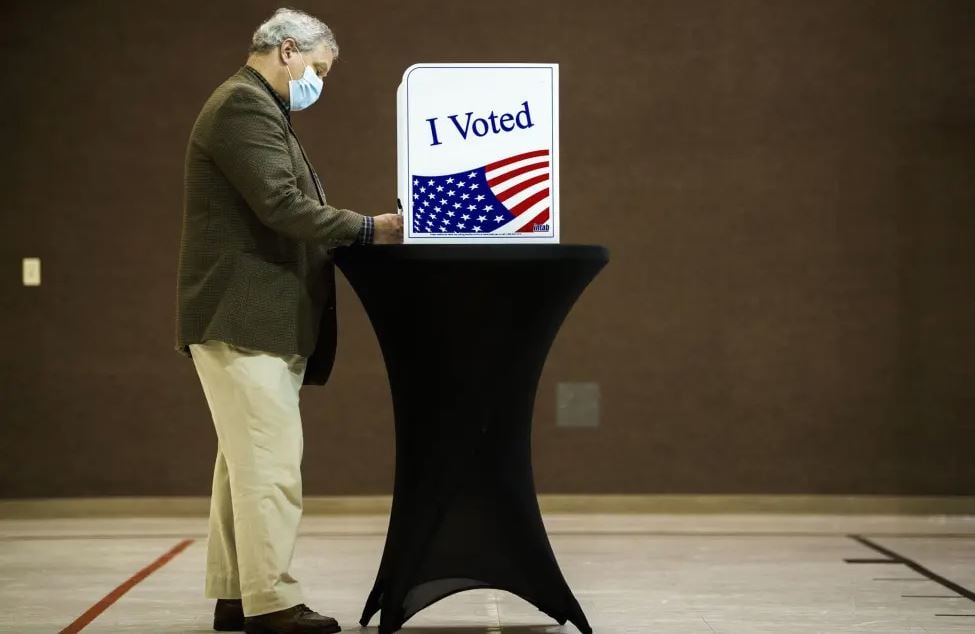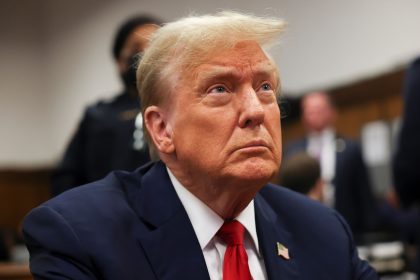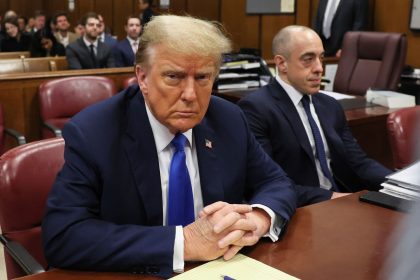Appeals Court Restricts Right to Sue Under the Voting Rights Act

ST. LOUIS — A federal appeals court ruling this week limits the authority for lawsuits to enforce the Voting Rights Act to government agencies.
The ruling by the 8th Circuit Court of Appeals means individuals and civil rights advocates can no longer sue to protect voting rights of underprivileged persons.
The Voting Rights Act of 1965 was landmark legislation to prohibit racial discrimination in voting. Congress later amended it five times to expand the rights.
The issue in the NAACP’s lawsuit against the Arkansas Board of Apportionment centered on Section 2 of the Voting Rights Act. It prohibits any voting law, practice or map that results in the “denial or abridgement of the right of any citizen of the United States to vote on account of race or color.”
The appellate court ruling eliminated any “private right of action” for Section 2 enforcement. The ruling retains the prohibition against discrimination but says only government entities can sue to enforce it.
The ruling fell under immediate criticism from civil rights advocates.
Sophia Lin Lakin, director of the ACLU’s Voting Rights Project, who argued the appeal against the Arkansas Board of Apportionment, said on behalf of the challengers, “This ruling is a travesty for democracy. For generations, private individuals have brought cases under Section 2 of the Voting Rights Act to protect their right to vote.”
Barry Jefferson, political action chair of the Arkansas State Conference of the NAACP, said in a statement, “This decision is a devastating blow to the civil rights of every American, and the integrity of our nation’s electoral system. By stripping individuals of the ability to sue under Section 2 of the Voting Rights Act, the court has gutted one of the most critical protections against voting discrimination.”
The NAACP and its supporters say they are considering their legal options, which could include an appeal to the U.S. Supreme Court.
Their outrage was not shared by Arkansas Attorney General Tim Griffin. He called the 8th Circuit’s ruling “a victory for our citizens and for the rule of law.”
He said the court’s decision would prevent unnecessary lawsuits by special interest groups.
“For far too long, courts across the country have allowed political activists to file meritless lawsuits seeking to seize control of how states conduct elections and redistricting,” Griffin said.
The majority opinion of the St. Louis-based 8th Circuit, which covers seven Midwestern states, said, “After reviewing the text, history and structure of the Voting Rights Act, the district court concluded that private parties cannot enforce Section 2. The enforcement power belonged solely to the attorney general of the United States.”
Because the Voting Rights Act does not specifically mention a private right of action, it does not automatically give private citizens a right to sue, the court said.
“To accept this interpretation, we would have to conclude that Congress hid the proverbial elephant in a mousehole,” U.S. Circuit Judge David R. Stras wrote for the 2-1 majority.
The ruling added, “When those details are missing, it is not our place to fill in the gaps, except when ‘text and structure’ require it.”
The ruling affirms a U.S. district court ruling but contradicts all other federal courts that have handled Voting Rights Act cases.
In June, the Supreme Court agreed with civil rights groups and private citizens who sued to block Alabama’s congressional redistricting maps as a violation of the Voting Rights Act.
The court ordered creation of a majority Black voting district by next year to counterbalance what it described as racial gerrymandering.
You can reach us at [email protected] and follow us on Facebook and Twitter
























